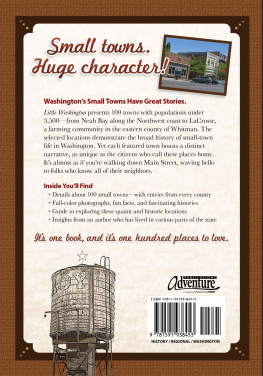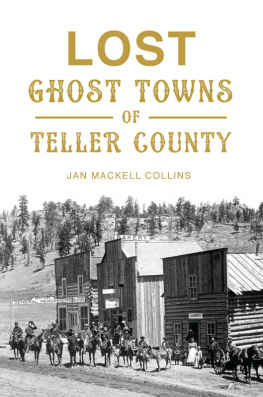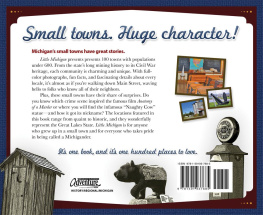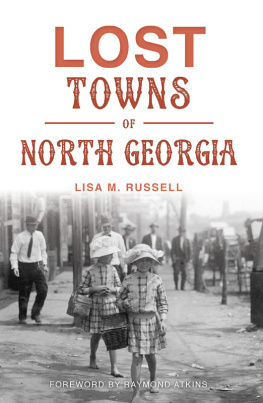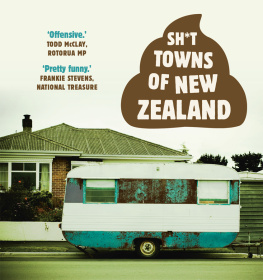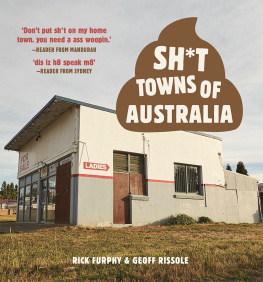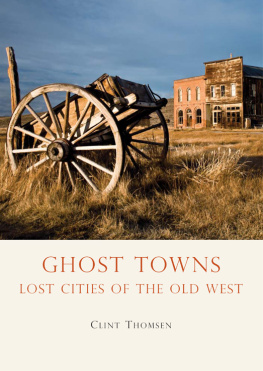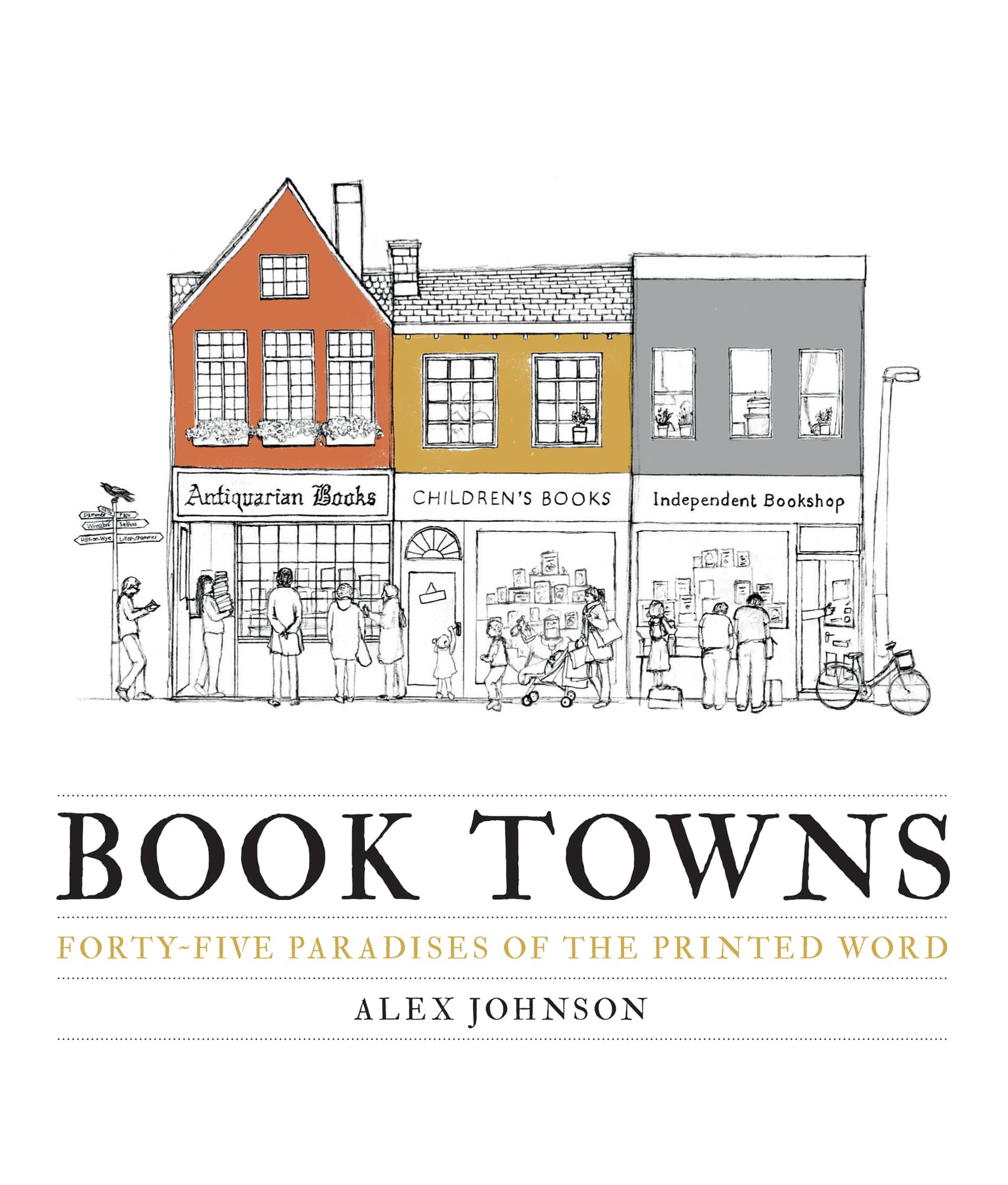Crowded bookshelves in the book town of Becherel, France.
BOOK TOWNS
FORTY-FIVE PARADISES OF THE PRINTED WORD
ALEX JOHNSON

INTRODUCTION
Sometimes you need more than just one book, more than just one bookshop. Sometimes you need a whole book town.
Whether you call it a Boekenstad, Village du Livres, Bokby or Bkabirnir, from Canada to Korea and from Iceland to Australia a movement is growing. In hamlets, villages and towns around the world, like-minded booksellers, calligraphers, bookbinders, curators, publishers and architects are coming together to ensure a future for the printed book, defying the e-book onslaught, and providing a new future for fading communities.
This is the first book to bring all of these book towns together, offering a unique history of each one, and encouraging readers to seek them out. By visiting these towns you are not only helping to save the printed book; you are helping to keep communities alive.
A book town is simply a small town, usually rural and scenic, full of bookshops and book-related industries. The movement started with Richard Booth in Hay-on-Wye in Wales in the 1960s (see ), picked up speed in the 1980s and is continuing to thrive in the new millennium. From the start, the driving force has been to encourage sustainable tourism and help regenerate communities faced with economic collapse and soaring unemployment. One important reason that almost all book towns are in bucolic locations is that they require cheap property to enable book businesses to open their doors. Many have been subsidised by local authorities to help them get off the ground.
While many cities have numerous bookshops, book towns concentrate the outlets in a small area to create a critical mass. There are some sellers such as Barter Books in Alnwick, England, or the late Tom Rudloffs Antiquarium in Brownville, Nebraska, which are their towns main attraction; but however impressive they are to visit, they do not make their location a book town. Booktown Books in Grass Valley, California, is somewhere in-between a remarkable co-operative of a dozen booksellers who work out of a large two-storey building.
Montereggio, Italy. This town has a tiny population but there are books on sale everywhere, even along the city walls.
And while most are run by individual booksellers, some have taken a different route. Purgstall (population: 5,000) in Lower Austria is the countrys only book town, an hour west of Vienna by train or road. Established in 2000, it is run as a non-profit organisation by a team of volunteers who also aim to provide opportunities for people who are ill or disabled. Despite a bad fire in 2013, Purgstall is still keen to cater for people who enjoy books and in 2016 installed two renovated telephone boxes as Bcherschrnke (honesty libraries) in the church square.
The results of the book town crusaders have been impressive. By rebranding themselves, they are attracting more visitors who then stay in the local hotels and guesthouses, dine in the local eateries, go shopping in the town shops and gradually rebuild the local economy. Some even end up buying property. A visitor to Wigtown in Scotland in 1988 who returned today would barely recognise it.
E-readers are not especially popular in book towns This one was shot with a 12-bore shotgun by Shaun Bythell, owner of The Wigtown Bookshop in Scotland.
Book towns also create more voices in support of the printed word, in a time of technological flux. While encouraging old-fashioned book buying, they have also helped centuries-old techniques such as papermaking to flourish, with positive knock-on effects on other creative industries locally, particularly for artists. At the same time, many of these sellers have also harnessed the power of the internet to run their businesses partly online (though several are resolutely opposed to this). Several have developed major literary festivals; Hay-on-Wyes is the most famous, but almost all book towns have their own. Vtikvere book village in Estonia may have no booksellers, but that does not stop it running an annual literary gathering each August, organised by writer Imbi Paju to celebrate literature and books.
Although they all operate independently, many are members of the International Organisation of Book Towns (even though some are more of a bookshop quarter than an actual township). The IOBT aims to raise interest in the book town ethos and runs a biennial festival in one of the member towns.
Captain, named after Captain Cat in Under Milk Wood, is a popular member of the bookselling team at The Wigtown Bookshop.
Inevitably not all book towns have stayed the course. Blaenavon in Wales and Atherstone in England had the misfortune to be very closely involved with an individual who is now serving a long prison sentence in America, and their book town projects subsequently fell by the wayside (although the enormous Astley Book Farm, a dozen miles from Atherstone, is keeping book buying alive in the area).
Others have started hopefully but never taken off. Writer Larry McMurtry hoped that his vast shop, Booked Up, would kickstart plans to turn Archer City in Texas into a book town. Sadly these plans have faded, and his own bookselling empire has shrunk. In Stillwater, Minnesota, the closure of St. Croix Antiquarian Books leaves only Loome Theological Booksellers and Valley Bookseller to keep the flame alive (see ). In Germany, Edenkoben is no longer a Bcherdorf, although there is still a rather nice book caf there, Bckerei & Bchercafe Dicker, if youre passing nearby.
Outdoor honesty bookshops like this one in Hay-on-Wye, Wales are common sights in book towns around the world.
But on the bright side, new locations are in the pipeline. Indian authorities have recently begun what they hope will become a book village network, and El Pedroso in Andalucia, Spain, is a prospective member of the IOBT. There is talk of a Borneo Book Village; an integrated book centre in Kuching in the near future. And some that looked like they were on their way out, such as Bowral in Australia, have happily returned with a new lease of life (see ).
At a time when libraries are becoming an endangered species and independent bookshops struggle against the rise of the e-book, book towns are beacons of hope in the fight to keep the traditional book alive. Please visit them and buy a book or two.
Note
The opening hours of the bookshops and other book businesses in book towns varies tremendously. They are usually open at weekends and during holidays, though even this varies, while others operate normal weekday business hours as well. Please do check times before visiting to avoid disappointment.




